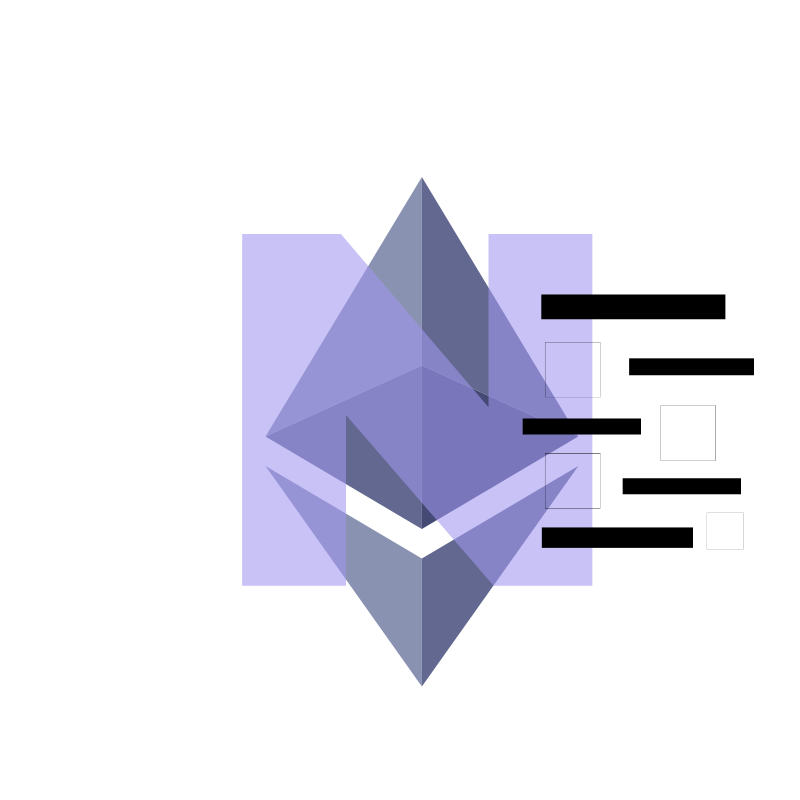

Ethereum Gas Fees Plummet 95% While ETH Price Takes a Hit Post-Dencun Upgrade
Mar 16, 2025
2 min read
Ethereum has experienced a significant transformation in its transaction fee structure following the Dencun upgrade, which took place on March 13, 2024. While gas fees have dropped dramatically, the price of Ether (ETH) has seen a substantial decline, raising questions about the network's future in the competitive crypto landscape.
Key Takeaways
Ethereum's average gas fees decreased by 95% from 72 gwei to 2.7 gwei within a year.
Transaction costs for swaps and NFT sales have fallen from $86 and $145 to $0.39 and $0.65, respectively.
Despite lower fees, ETH's price has plummeted by 53%, from over $4,070 to around $1,891.
Upcoming upgrades, including Pectra, aim to further enhance scalability and reduce costs but face technical challenges.
Overview Of The Dencun Upgrade
The Dencun upgrade was a pivotal moment for Ethereum, merging the Cancun upgrade on the execution layer with the Deneb upgrade on the consensus layer. This upgrade introduced nine Ethereum Improvement Proposals (EIPs) aimed at improving scalability and reducing transaction costs, particularly for layer-2 networks.
The impact of the Dencun upgrade has been profound, with average gas fees dropping from 72 gwei in March 2024 to just 2.7 gwei by March 12, 2025. This reduction has made Ethereum more accessible to users, particularly in decentralized finance (DeFi) and non-fungible token (NFT) markets.
The Price Decline of Ether
Despite the significant reduction in gas fees, the price of Ether has not followed suit. Since the Dencun upgrade, ETH has seen a staggering 53% decline in value, dropping from over $4,070 to approximately $1,891. This paradox highlights the complexities of the cryptocurrency market, where technical advancements do not always correlate with price appreciation.
Dominik Harz, co-founder of Build on Bitcoin (BOB), noted that the recent price drop has erased all DeFi total value locked (TVL) gains since the election of Donald Trump. He emphasized that Ethereum is facing stiff competition from other networks, particularly Solana, which has seen increased activity in the meme coin sector.
Future Upgrades and Challenges
Looking ahead, Ethereum's next major upgrade, Pectra, was deployed on the Sepolia testnet on March 5, 2025. However, the rollout has encountered technical issues, including errors that resulted in empty blocks being mined. While the development team has managed to stabilize the testnet, these challenges have raised concerns about the mainnet launch.
Harz pointed out that while Pectra aims to double the available data space for layer-2 solutions and further reduce costs, it may not be a comprehensive solution to Ethereum's deeper issues. The network is at a critical juncture, needing to regain investor confidence and prove its relevance in a rapidly evolving blockchain ecosystem.
Conclusion
The dramatic drop in Ethereum's gas fees marks a significant achievement for the network, making it more user-friendly and accessible. However, the concurrent decline in ETH's price and ongoing technical challenges pose serious questions about Ethereum's long-term viability and its ability to maintain its status as a leading blockchain platform. As the crypto landscape continues to evolve, Ethereum must navigate these challenges to secure its future in the market.
Sources
Ethereum average gas fees drop 95% one year after the Dencun upgrade, Cointelegraph.
Ethereum Gas Fees Drop 95% in One Year, but ETH Price Falls 53% Since Dencun Upgrade, CoinMarketCap.
Ethereum Fees Collapse By 95%: A Historic Turning Point!, Cointribune.